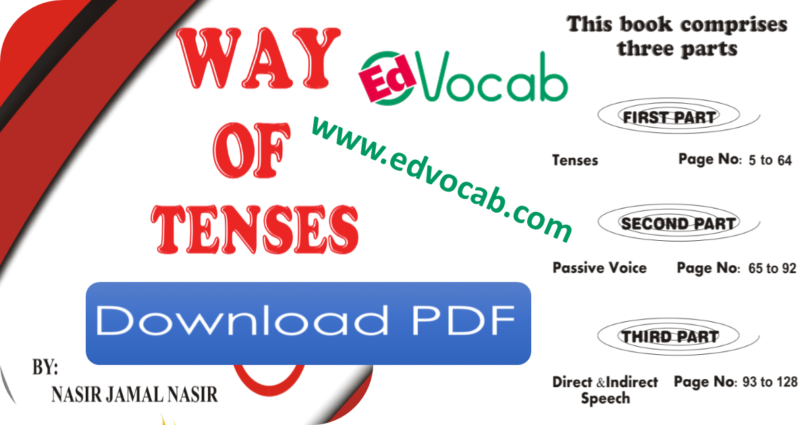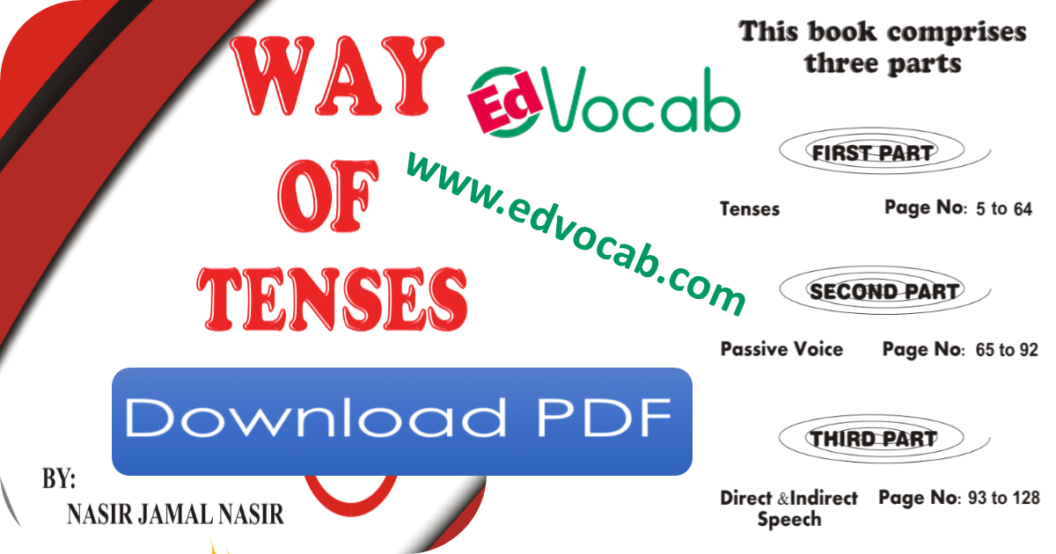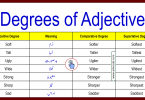Tenses are a grammatical feature of verbs that express the time when an action or state of being occurs. In English, there are three primary tenses: past, present, and future. The past tense is used to describe actions or states that have already happened in the past. For example, “I went to the store. “The present tense is used to describe actions or states that are currently happening or are generally true. For example, “I am eating breakfast.” The future tense is used to describe actions or states that will happen in the future. For example, “I will go to the store tomorrow.” In addition to these three primary tenses, there are also several secondary tenses, such as the present perfect, past perfect, and future perfect, which are used to describe more complex relationships between past, present, and future events.
WhatsApp group Link for Chat and Spoken English | 200+ Groups
Download Now Way Of Tenses
Tenses are an essential part of English grammar and are important for effective communication in both written and spoken language. Here are some reasons why tenses are important:
- Time reference: Tenses allow us to indicate the time when an action or state of being occurred, is occurring, or will occur. This helps to clarify the sequence of events and provide context for what is being communicated.
- Accuracy: The use of appropriate tenses is essential for accuracy in communication. Using the wrong tense can result in confusion and misunderstanding.
- Clarity: Tenses help to make communication clear and unambiguous. Using the appropriate tense can help to convey the intended meaning of a sentence.
- Variety: The use of different tenses can add variety and interest to your writing and speaking, making it more engaging for your audience.
- Formal writing: In formal writing such as academic papers, reports, and business communication, the use of correct tenses is necessary to convey professionalism and credibility.
In short, the proper use of tenses is important for effective communication in English and is an essential skill for anyone learning the language.
There are many other books available on the subject of tenses in English grammar. Here are some popular ones:
- “English Verb Tenses” by L.D. Larsen-Freeman and Diane Larsen-Freeman: This comprehensive book covers all aspects of English verb tenses, including the structure, usage, and meaning of each tense.
- “The English Tenses Practical Grammar Guide” by Phil Williams: This guide provides clear explanations and practical examples of how to use English tenses correctly in different situations.
- “Grammar in Use: Intermediate” by Raymond Murphy: This book is a popular choice for intermediate-level learners of English, covering tenses as well as other key grammar topics.
- “Practice Makes Perfect: English Verb Tenses” by Mark Lester: This book includes extensive exercises and practice activities to help learners master the use of English tenses.
- “The Only Grammar Book You’ll Ever Need” by Susan Thurman: This book covers a wide range of grammar topics, including tenses, in a clear and easy-to-understand format.
These books can be found online or at your local bookstore or library.








